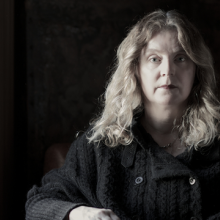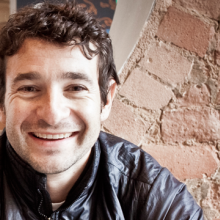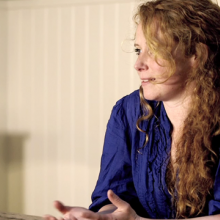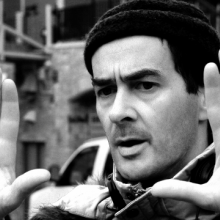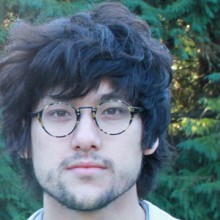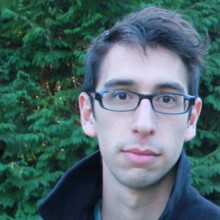When we last spoke to Joanna Hogg two years ago, in the wake of the release of her acclaimed debut feature Unrelated, she hinted her next film would be set in North Norfolk, which had, she added “personal connections” and an “interesting landscape.”
In fact, Archipelago turns out to be geographically located in the UK’s far South West, on Tresco in the Scilly Isles. It seems that this too had family connections from Hogg’s childhood and likeUnrelated, which was shot under familiar Tuscan skies, also centres on a stressed family holiday mixing regular actors with non-professionals.
Archipelago concerns a 28-year-old Edward Leighton (Tom Hiddleston, who also played a key role inUnrelated) who’s about to go off and do volunteer work in Africa. His mother (Kate Fahy) has organised a small family gathering at the holiday home to say ‘goodbye’, which sparks ensuing tensions as the fractured family wait for Edward’s father to arrive.
Filming on the Scillies, a genuine archipelago, gave the title an intriguing double meaning. Hogg explains: “The title relates to the family as a group of islands, linked together beneath the surface. What often links a family together goes unspoken and unacknowledged. Families are a way of protecting individuals from what they need to hear and often they have techniques for avoiding the real issues.
“The Leighton family are such a family! Their most dangerous trait is summed up by the missing picture on the [living room] wall. Ignoring or denying one’s shadow is far worse than confronting and embracing it. If you push something disturbing out of sight, it only reappears to haunt in other ways.”
Hogg prefers to film in a place she knows quite intimately, that has some “deeper meaning for me,” rather than just pick a place because it happens to be beautiful and then use it in some random way. In the case of the Scillies, although it had been the location of long-ago family holidays, the story wasn’t meant to be autobiographical as such. Rather she says, it mostly stemmed from other events that were more relevant to her current life.
Hogg, an NFTS graduate, had spent more than 10 years as a director-for-hire on episodic TV like London Bridge, Casualty and EastEnders, for which she helmed a well-received one-off special, Dot’s Story, before deciding to go it alone, as it were. The result was Unrelated, a very personal project. Hogg describes it as “a relatively conventional 100-page screenplay. But when I came to shoot the film I was carrying around this heavy document and found myself very resistant to reading it.
“Acknowledging that it had worked itself into my subconscious, I felt no need to be a slave to it. Then withArchipelago, I jumped straight in with a piece of prose, to describe the film I wanted to make. In many ways the writing was more precise than the screenplay for Unrelated, despite being only 30 pages long.”
"Having endlessly explored camera movement in my TV days, I wanted to create a more contemplative cinema. I like to give the audience time to explore the frame and become intimate with it."
Hogg suggests that her new film is probably “less autobiographical than Unrelated but more personal. Facts don’t necessarily lead to truth. I was ambivalent around whether I had the right to portray people close to me, and in the end I decided to base all the characters on myself so I wouldn’t hurt anyone.
“What I feel I’ve ended up with is a rather unflattering self portrait, in which I’ve created a kind of internal family that bears no relation to my family of origin. Whilst escaping from what felt too close for comfort, I actually threw myself headlong into something infinitely more personal. This took me into deeper and darker territory and gave me more freedom to follow my instincts.”
Archipelago is shot very naturalistically (by DoP Ed Rutherford) using, in the main, a static camera with minimal-to-no edits within scenes. What inspired this stylistic approach?
Says Hogg: “Having endlessly explored camera movement in my TV days, I wanted to create a more contemplative cinema. I like to give the audience time to explore the frame, and become intimate with it. A close-up doesn’t necessarily mean intimacy.”
She also creates a different sense of intimacy through eschewing incidental music.
Says Hogg: There are many ways a film can be musical, without having an actual score. I love listening to birdsong and I wanted to explore the idea of birdsong and communication.
“When the Leighton family are not talking to each other, birds can be heard chattering outside. I also wanted the sound to be recorded up close, while the camera keeps a distance, again to give a greater feeling of intimacy.”
She admits that after the success of her first film she felt considerable pressure going in, as it were, the second time round. “I battled with that for a few months and once that had killed those demons which were stopping me from being just instinctive and doing what I really wanted to do, I found this new story and just got on and made it. Once I hooked onto the story I wanted to tell, it all came about very easily.”
So what has Hogg learned about writing/directing over the years? Her answer is as simple and direct as her style of filmmaking: “To trust my instincts and not worry about what other people think.”
Joanna Hogg's Top Tips for aspiring screenwriters
1. There’s a lovely quote from Gus Van Sant’s Finding Forrester. “Write your first draft with your heart, rewrite with your head”.
2. Soak up influences from other art forms.
3. Avoid screenwriting courses.
Joanna Hogg's Top Tips for aspiring directors
1. Preparation is good, but enjoy changing your mind on the day.
2. Read ‘Notes On Cinematography’ by Robert Bresson.
3. Observe what’s around you. Don’t be glued to the script.
Joanna and fellow filmmaker Adam Roberts programme A Nos Amours, a screenings series of overlooked, under-exposed or especially potent cinema.

